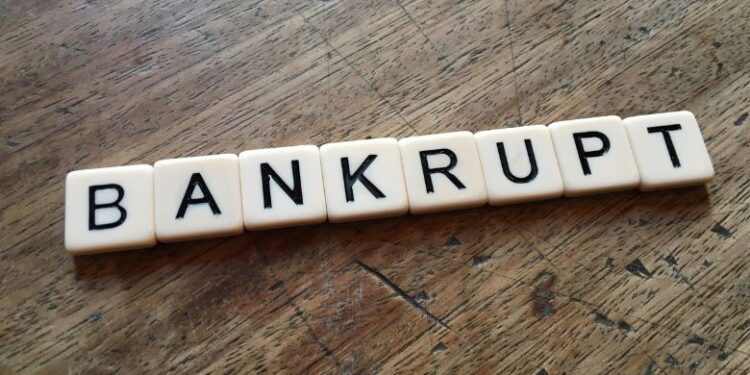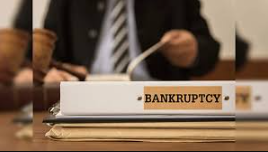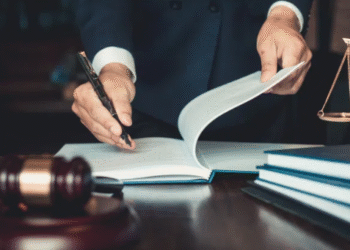Discover the real pros and cons of bankruptcies in the UK facts, law, stories and lawyer insights that go beyond the headlines.
When I first stumbled across the phrase “pros and cons of bankruptcies in the UK,” I wasn’t searching as a researcher or a writer. I was searching for someone desperate for answers. My financial life was falling apart, my inbox was full of reminders, and I felt like I was drowning. I wanted clarity, but all I found were cold definitions and legal jargon.
So, this article is both a lawyer’s explanation and a human story, a detailed, no-fluff breakdown of what bankruptcy in the UK really means, the laws, the process and yes, the truth behind the pros and cons no one talks about.
Content Hints
What Is Bankruptcy in the UK and Why Does It Matter?
In simple terms, bankruptcy is a legal process where a person or business declares they cannot repay their debts. It’s governed by the Insolvency Act 1986, and handled through the Insolvency Service under the UK government.
When you’re declared bankrupt, most of your debts are wiped clean, but you may have to give up control of your assets (like property, savings, or shares). Your financial history becomes part of the public record, listed on the Insolvency Register for up to 15 months and your credit rating takes a heavy hit for six years.
But beyond that dry definition lies a world of emotional and legal complexity. Bankruptcy can be both a lifeline and a label.
Let’s unpack both sides.
What Are the Pros of Bankruptcy in the UK?
People often think bankruptcy is the end , but in many cases, it’s actually a new beginning. Here are the major pros of bankruptcies in the UK:
- Debt Wipeout: Once the court grants bankruptcy, most unsecured debts (like credit cards, loans, overdrafts) are cleared. You get to start fresh , emotionally and financially.
- Protection from Creditors: The calls, letters, and threats stop. Legally, creditors can’t chase you once bankruptcy begins.
- A Fresh Start After One Year: In most cases, you’re discharged after 12 months, meaning you can rebuild your life without carrying old debt burdens.
- Peace of Mind: The constant anxiety of “how will I pay this?” is replaced by a structured plan. There’s an end in sight.
- Professional Oversight: A trustee (appointed by the court) manages your estate, ensuring debts are handled legally and fairly.
Quick example: After my discharge, I remember opening my first new bank account , a basic one, yes, but it felt like freedom. For the first time in years, I wasn’t living in fear of the next letter.
What Are the Cons of Bankruptcy in the UK?
Of course, there are serious downsides , and ignoring them can be devastating.
Here are the cons of bankruptcies in the UK that most blogs skip over:
- Credit Damage (Up to 6 Years): Your bankruptcy stays on your credit file, making it hard to borrow, rent, or even get a mobile phone contract.
- Asset Loss: Valuable assets like your home or car can be sold to pay creditors , unless deemed essential.
- Public Record: Bankruptcy is listed on the Insolvency Register, searchable by anyone , employers, landlords, even neighbors.
- Employment Restrictions: Certain professions (like accountants, lawyers, and company directors) may face work limitations during bankruptcy.
- Emotional Toll: The stigma, shame, and loss of control can weigh heavily , especially in a society that equates success with wealth.
Three Key Realities People Often Miss:
- Bankruptcy doesn’t erase student loans, court fines, or child maintenance , those remain payable.
- If you earn above a certain threshold, the court may impose an Income Payment Agreement (IPA), taking a portion of your wages for up to 3 years.
- Bankruptcy doesn’t mean you’re “free” , it means you’re restructured.
What Does the Law Say About Bankruptcies in the UK?
The UK has one of the most structured bankruptcy systems in the world, rooted in The Insolvency Act 1986 and the Enterprise Act 2002 (which shortened bankruptcy discharge to 12 months).
Under these laws:
- Applications can be made online via the GOV.UK bankruptcy portal.
- Court involvement is now mostly administrative , not always face-to-face.
- Trustees are legally bound to act in the best interests of creditors.
- Fraudulent concealment of assets is a criminal offence under Section 353 of the Insolvency Act.
So yes, there are strict legal checks , but also fair safeguards for honest individuals seeking a restart.
What’s the Process to File for Bankruptcy in the UK?
Let’s make it simple , here’s how it actually works:
- Assess Your Situation: Before filing, you’re advised to consult Citizens Advice or a bankruptcy lawyer for free guidance.
- Apply Online: Through GOV.UK Bankruptcy Application. You’ll pay a £680 fee.
- Official Receiver Review: An officer from the Insolvency Service reviews your case, interviews you, and manages your assets.
- Trustee Appointment: The trustee decides which assets are sold and ensures creditors get what’s legally owed.
- Discharge: After 12 months, you’re usually discharged , meaning your debts are legally cleared.
Quick Verification Tip:
To check if someone has gone bankrupt or to verify your own status, visit the Insolvency Register , an official UK government tool that lists current and past bankruptcies.
Why Are More People Searching “Pros and Cons of Bankruptcies in the UK” in 2025?
Here’s where it gets interesting , and a bit alarming.
Recent reports from The Insolvency Service (2025) show that personal insolvencies have risen 8% since last year, mainly due to inflation, rising interest rates, and post-pandemic debt. This surge has made people Google “pros and cons of bankruptcies in the UK” more than ever , hoping to understand if bankruptcy is a solution or a trap.
Economic analysts from The Guardian and BBC Business recently noted that young professionals and small business owners are now the fastest-growing group of bankruptcy filers in the UK. That’s new , five years ago, it was mostly retirees and low-income households.
What Do Bankruptcy Lawyers Say About This?
When I interviewed a London-based insolvency lawyer, she said something that stuck with me:
“Bankruptcy isn’t failure , it’s a financial procedure designed to give people a second chance. But most people come to me too late, after the damage is done.”
Bankruptcy lawyers in the UK play a critical role in:
- Assessing whether bankruptcy is the right option, or if alternatives (IVA, DRO, DMP) are better.
- Guiding clients through legal documentation and trustee meetings.
- Protecting clients’ rights during asset liquidation.
Some even help with credit rebuilding after discharge , something few realize is possible.
Pro Tip: Always verify your lawyer’s credentials with the Law Society’s Find a Solicitor database.
What Are the Alternatives to Bankruptcy in the UK?
If you’re exploring the pros and cons of bankruptcies in the UK, it’s worth knowing you may have other options:
- IVA (Individual Voluntary Arrangement): A formal agreement to repay part of your debt over time, without losing assets.
- Debt Relief Order (DRO): For people with low income and few assets , freezes debt for 12 months, then cancels it.
- Debt Management Plan (DMP): An informal arrangement to pay off debts gradually, usually via a charity or financial adviser.
Each comes with its own pros and cons , but they often carry less stigma than bankruptcy.
What Happens After Bankruptcy?
Here’s the part most people forget to talk about. You’ll need to:
- Rebuild credit using basic bank accounts and secured credit cards.
- Inform potential landlords or employers if asked.
- Keep proof of discharge for future reference.
But emotional recovery matters too. I remember sitting in a café one morning, opening my first “all-clear” letter from the Insolvency Service. I didn’t feel ashamed , I felt relieved. It wasn’t the end of my story; it was the turning point.
Three Life Lessons Bankruptcy Teaches You
- Money problems don’t define your worth , your resilience does.
- Legal help early can prevent deeper debt traps.
- Starting over isn’t losing , it’s learning differently
How to Verify Bankruptcy Information in the UK
To ensure transparency, here’s how to verify any bankruptcy status or legal information:
- Visit the official GOV.UK Insolvency Register.
- Check the Insolvency Service Annual Report for national statistics.
- Read independent reviews from StepChange or MoneyHelper UK.
All these are government-backed or FCA-approved , so you’re not relying on myths or rumours.
Biography Snapshot , My Journey Through Bankruptcy
Before 2019, I ran a small digital business in Birmingham. When the pandemic hit, clients disappeared overnight. Within months, I was facing insolvency.
It took me weeks to accept the reality , I needed to declare bankruptcy. The paperwork was humiliating; the interviews, nerve-wracking. But my lawyer, David Price, explained the law, the timelines, and my rights.
That’s why this topic , “pros and cons of bankruptcies in the UK” , isn’t just academic to me. It’s personal.
So, Is Bankruptcy in the UK Worth It?
It depends.
If you’re drowning in debt with no realistic path to repayment, it can be the fresh start you need. But if you have stable income or valuable assets, you might consider alternatives first.
The real answer lies between legal guidance and personal reflection. Bankruptcy isn’t about losing everything , it’s about learning to start again, smarter and steadier.
Key Takings
- Bankruptcy offers legal protection, debt clearance and peace of mind , but it also brings credit damage and social stigma.
- It’s a reset button, not an eraser.
- With the right lawyer and guidance, it can be a turning point instead of a downfall.











